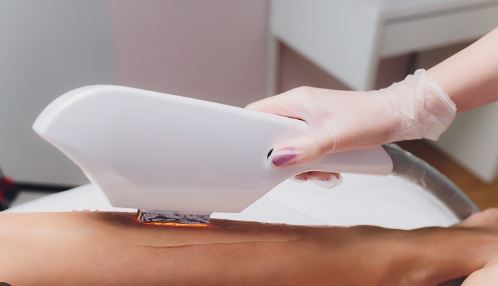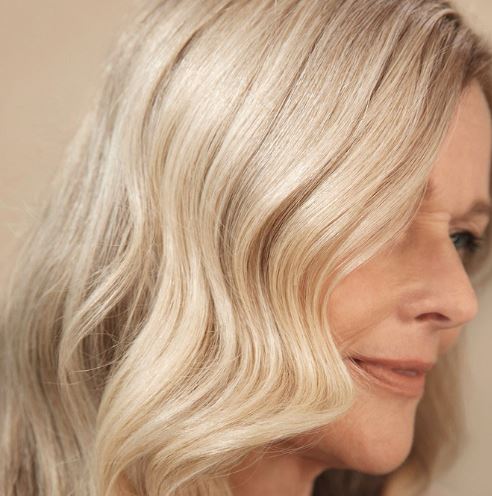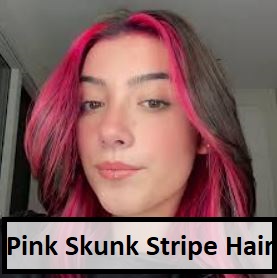Table of Contents
- 1 2. What is Protein?
- 2 3. Hair Structure
- 3 4. Protein is important for hair growth.
- 4 5. Advantages of Protein for hair
- 5 6. Protein Sources for Hair Care
- 6 7. How do you incorporate protein into your Your Hair Care Routine
- 7 8. Protein Dos and Don’ts for Hair Care
- 8 9. Conclusion
- 9 FAQs = Protein in Hair Care
- 9.1 What is the frequency should I apply treatment with protein on my hair?
- 9.2 Does excessive protein damage your hair?
- 9.3 What are the signs for protein deficiencies in hair?
- 9.4 Can I utilize plant-based protein to treat my hair?
- 9.5 Is it necessary to consult a professional before using protein-based products on hair?
Hair treatment is an integral part of our routine and knowing the importance of protein in maintaining beautiful and healthy hair is essential.
Proteins play a crucial function in your hair’s structure as well as overall health.
From encouraging growth to repairing damaged hair and repairing damage, proteins are crucial to maintaining beautiful and healthy locks.

In this article, we will discuss the importance of protein in hair and then discuss ways to integrate it into our hair regimens to maintain it effectively.
2. What is Protein?
Proteins are macromolecules composed by amino acid. They are vital to their structure and function and control of the cells and tissues in our bodies. When it comes to hair health proteins are essential for maintaining healthy and strong hair.
2.1. Types of Protein
There are different kinds of protein that have an important part in hair treatment. The most commonly used protein types in hair products are:
-
-
- Keratin: The primary protein that forms the hair shaft.
- Collagen: Gives strength and elasticity to hair.
- Silk Protein enhances the smoothness and shine.
- Wheat Protein: Strengthens and repairs damaged hair.
- Soy Protein is a great protein that nourishes and hydrates hair.
-
3. Hair Structure
To comprehend the importance in the role of proteins in hair maintenance, it’s important to comprehend the basic hair’s anatomy.
Hair is comprised from three distinct layers: cortex, the medulla, and the cuticle. Its cortex houses most of the hair’s protein, is responsible for its durability and elasticity.
4. Protein is important for hair growth.
Protein is vital to maintain the general appearance and health of hair. It offers many benefits and helps combat the various hair-related issues that are caused by a protein shortage.
4.1. A lack of protein and hair Loss
Insufficient protein intake or the absence of protein in the routine of hair care can cause hair issues like hair breakage and thinning, dullness and slow growth of hair. Insufficient protein can weaken the hair shaft which makes it more susceptible to breakage.
Don’t miss:
- Find the Perfect Hair Color for Your Skin Tone
- Rose Gold Hair Dye
- Suberb Fashions Scholarship Program
- Master the Art of Hair Dye Techniques
- Get Gorgeous Highlights for a Fresh Look
- DIY Hair Coloring Tips and Tricks
5. Advantages of Protein for hair
Incorporating protein into your daily hair regimen can provide numerous advantages. Let’s take a look at the benefits of protein to treat hair:
5.1. It strengthens hair
Protein is a strong hair shaft and prevents breakage, resulting in thicker and stronger hair strands. Regular treatments with protein can dramatically improve the strength of hair and reduce split ends.
5.2. Repairs damaged hair
Protein aids in repairing damaged hair by filling in the gaps in the shaft as well as making the cuticles smoother. This improves the texture, less frizz and a better hair’s manageability.
5.3. Promotes Hair Growth
Protein is important to hair growth since it supplies the vital elements for the development of hair cells. It aids in stimulating hair follicles which results in more healthy and faster growth of hair.
5.4. Increases hair elasticity
Protein increases hair’s elasticity, which makes it more resistant to breaking and stretching. This is especially beneficial to those who have hair that is curly or chemically treated.
6. Protein Sources for Hair Care
To enjoy the benefits of protein in hair, it’s important to incorporate protein-rich meals and products for hair into your daily diet.
6.1. Protein-Rich Foods
Include eggs and fish, lean meats and other proteins and legumes, nuts and even seeds in the diet of your choice to guarantee a sufficient protein intake. A balanced diet high in protein will aid in the overall health of your hair.
6.2. Protein-Based Hair Products
Make sure you are using products for your hair which include the protein component to be one of the main ingredients. Shampoos, conditioners, and treatments can aid in strengthening and replenishing your hair.
7. How do you incorporate protein into your Your Hair Care Routine
Incorporating protein into your daily hair regimen is easy and efficient. Here are some ways to ensure that your hair gets the protein it requires:
7.1. DIY Protein Hair Masks
Make protein-rich hair masks at home with ingredients like eggs, yogurt avocado, honey, and yogurt. Apply the masks frequently to strengthen and improve the health of your hair.
7.2. Protein Treatments
Take a look at professional protein treatments that are available in salons, or try the protein-based treatments for hair at your home.
These treatments give an additional increase in protein levels for your hair, particularly in the event that it’s damaged, or has been over-processed.
8. Protein Dos and Don’ts for Hair Care
Although the protein is good for your hair, it’s essential to have an equilibrium approach. Here are some guidelines and rules regarding protein in hair care
- Make sure you choose the best quantity and type of protein to your hair.
- Do not overdo your hair with too much protein because it may cause breaking and stiffness.
- Follow the directions on hair products made of protein to get the best results.
- Do not rely on only treatments for protein; keep a comprehensive hair care regimen.
9. Conclusion
Protein is a key component in hair care and offers many benefits, including strength and repair, growth, and elasticity.
When you incorporate protein-rich food items and products for hair in your daily routine to improve your hair’s health, you can improve the health and appearance of your healthy hair.
Be sure to keep a healthy proper balance and talk to a professional when needed to improve your hair care routine.
FAQs = Protein in Hair Care
What is the frequency should I apply treatment with protein on my hair?
The frequency of treatments with protein is contingent upon the condition of your hair. As a general rule of thumb try to do it each between two and four weeks. If your hair is badly damaged and damaged, you may require more frequent treatments at first.
Does excessive protein damage your hair?
Yes, excess proteins can result in hair stiffening and becoming fragile. It’s crucial to find the right balance and avoid overusing products or treatments that contain protein.
What are the signs for protein deficiencies in hair?
The signs of a protein deficiency in the hair are more breakage, slow hair growth, loss of elasticity, dullness and brittleness. If you observe these symptoms then it may be a sign that your hair is in need of more protein.
Can I utilize plant-based protein to treat my hair?
Yes, protein sources that are plant-based like wheat protein and soy protein are appropriate for hair treatment. They supply nutrition and strength to the hair in a similar way to animal proteins.
Is it necessary to consult a professional before using protein-based products on hair?
Although it’s not always required, speaking with an experienced hairdresser or trichologist can give valuable insight into the particular protein requirements of your hair. They can provide the most appropriate products and treatments to suit your hair’s type and condition.




